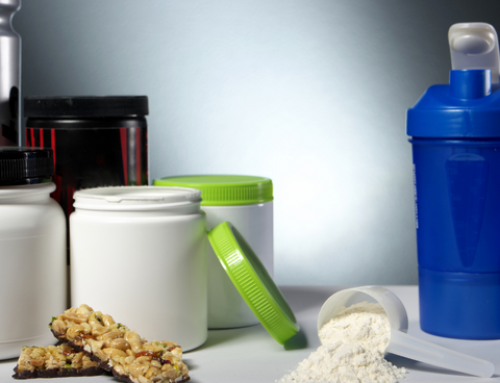What is Casein Protein?
Casein protein is a phosphoprotein commonly found in the milk of mammals. These proteins make up about 80 percent of the protein in cow’s milk and between 20 and 45 percent of the protein in human milk.
Milk contains two naturally occurring types of protein—whey and casein. When milk is curdled, the casein protein is concentrated in the curds, and the whey protein is contained in the remaining liquid. The curds are used to make many common cheeses, and they can also be processed to create casein protein supplements.
Casein protein is a “complete protein,” meaning it contains all nine essential amino acids our bodies need to get from foods to optimally build muscle. It also contains carbohydrates, calcium and phosphorus. A small number of people are allergic to casein protein.
RELATED: What is Whey Protein?
Why is Consuming Casein Protein Beneficial?
A major characteristic of casein protein is its poor ability to dissolve in water. This might sound undesirable, but it’s not. When it hits the stomach, casein protein forms into a gel-like substance, which allows for slow, efficient absorption of the protein into the bloodstream. A slow absorption rate facilitates the slow, sustained release of amino acids into the blood. This makes casein protein ideal to consume before bed.
A 10-week study at Baylor University found that adding casein protein to a whey supplement blend led to greater lean muscle gains than consuming the whey supplement alone. A 12-week study found that those who consumed a casein protein supplement had significantly better body composition and experienced greater strength gains than those who consumed a whey protein supplement.
Casein protein has also been found to help control appetite, preserve fat-free mass and strengthen tooth enamel.
Since whey protein is absorbed more rapidly than casein protein, it might be the better post-workout protein option.
RELATED: Whey vs. Casein Protein
When purchasing supplements, make sure they’re produced by a reputable manufacturer. Read the labels. If you are unsure of an ingredient, ask questions or do your own research. If you’re an athlete, make sure the supplement is labeled NSF Safe for Sport. Take care of your body and be responsible for what you put into it.
[cf]skyword_tracking_tag[/cf]RECOMMENDED FOR YOU
MOST POPULAR
What is Casein Protein?
Casein protein is a phosphoprotein commonly found in the milk of mammals. These proteins make up about 80 percent of the protein in cow’s milk and between 20 and 45 percent of the protein in human milk.
Milk contains two naturally occurring types of protein—whey and casein. When milk is curdled, the casein protein is concentrated in the curds, and the whey protein is contained in the remaining liquid. The curds are used to make many common cheeses, and they can also be processed to create casein protein supplements.
Casein protein is a “complete protein,” meaning it contains all nine essential amino acids our bodies need to get from foods to optimally build muscle. It also contains carbohydrates, calcium and phosphorus. A small number of people are allergic to casein protein.
RELATED: What is Whey Protein?
Why is Consuming Casein Protein Beneficial?
A major characteristic of casein protein is its poor ability to dissolve in water. This might sound undesirable, but it’s not. When it hits the stomach, casein protein forms into a gel-like substance, which allows for slow, efficient absorption of the protein into the bloodstream. A slow absorption rate facilitates the slow, sustained release of amino acids into the blood. This makes casein protein ideal to consume before bed.
A 10-week study at Baylor University found that adding casein protein to a whey supplement blend led to greater lean muscle gains than consuming the whey supplement alone. A 12-week study found that those who consumed a casein protein supplement had significantly better body composition and experienced greater strength gains than those who consumed a whey protein supplement.
Casein protein has also been found to help control appetite, preserve fat-free mass and strengthen tooth enamel.
Since whey protein is absorbed more rapidly than casein protein, it might be the better post-workout protein option.
RELATED: Whey vs. Casein Protein
When purchasing supplements, make sure they’re produced by a reputable manufacturer. Read the labels. If you are unsure of an ingredient, ask questions or do your own research. If you’re an athlete, make sure the supplement is labeled NSF Safe for Sport. Take care of your body and be responsible for what you put into it.
[cf]skyword_tracking_tag[/cf]











